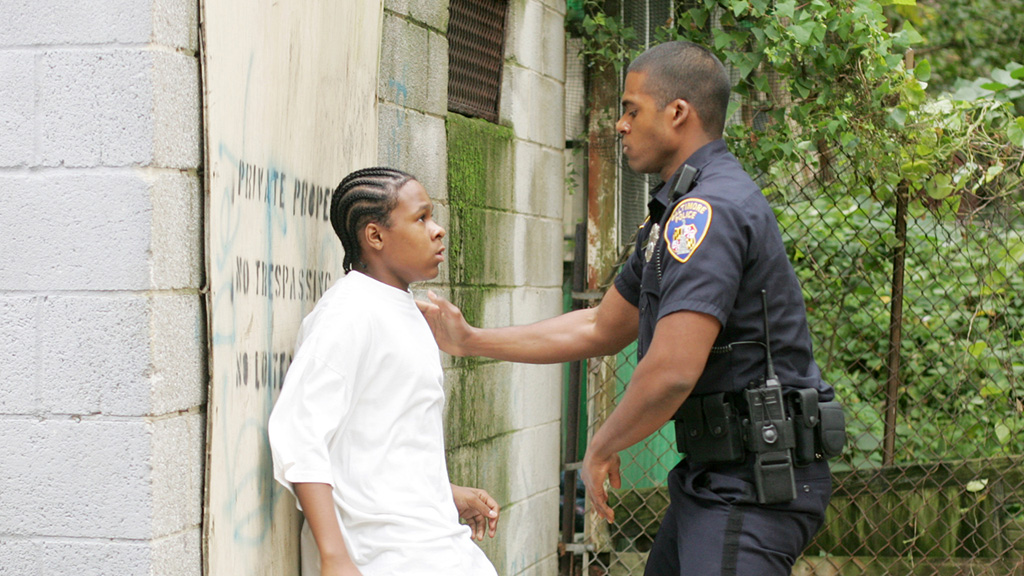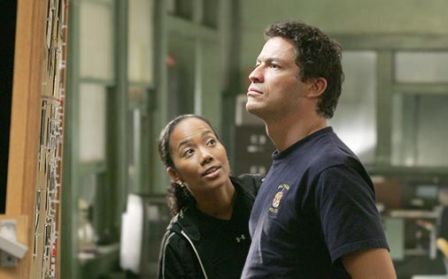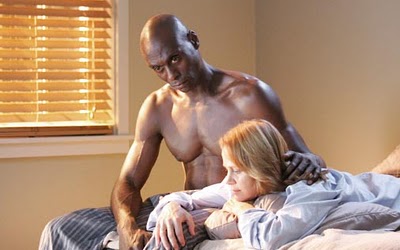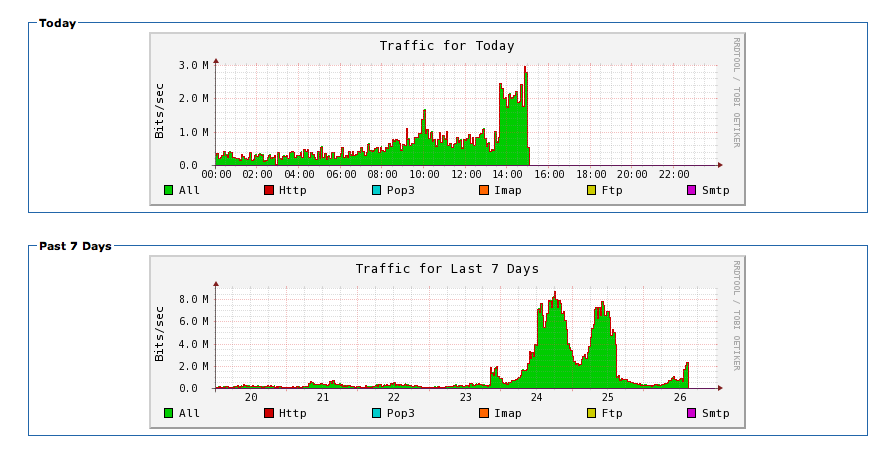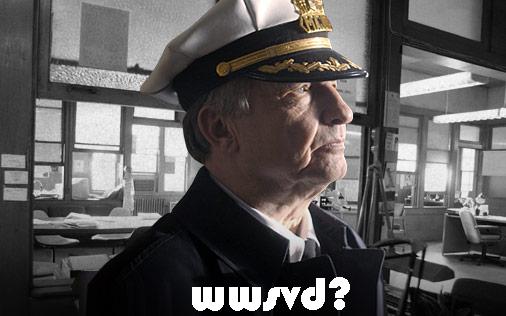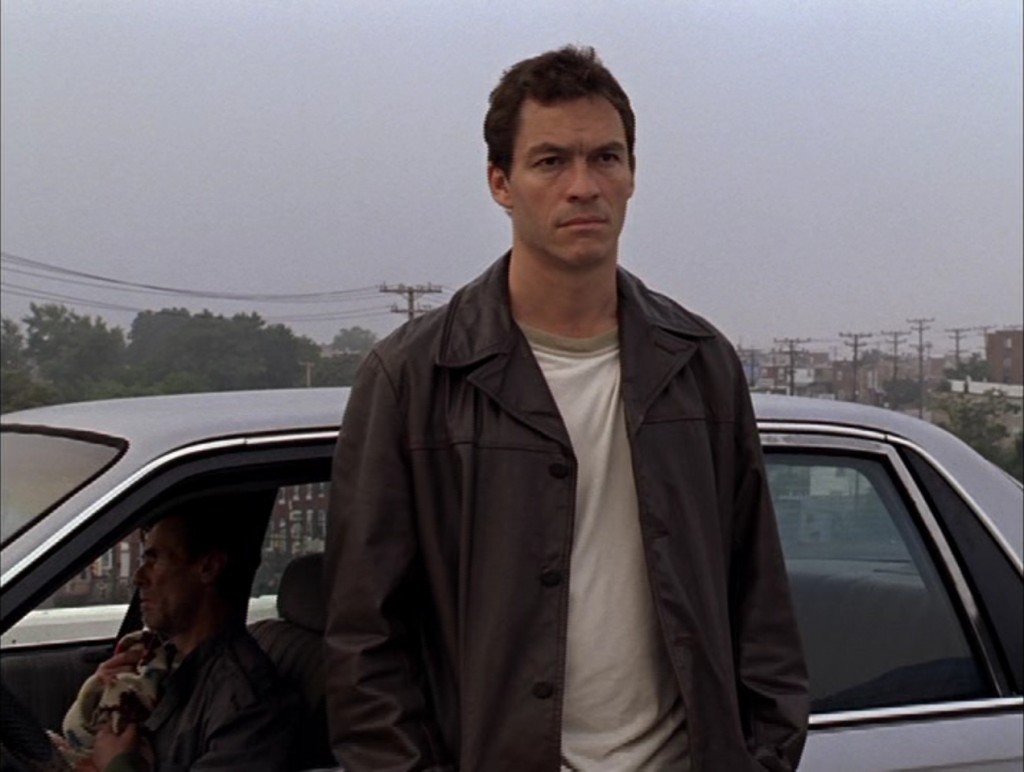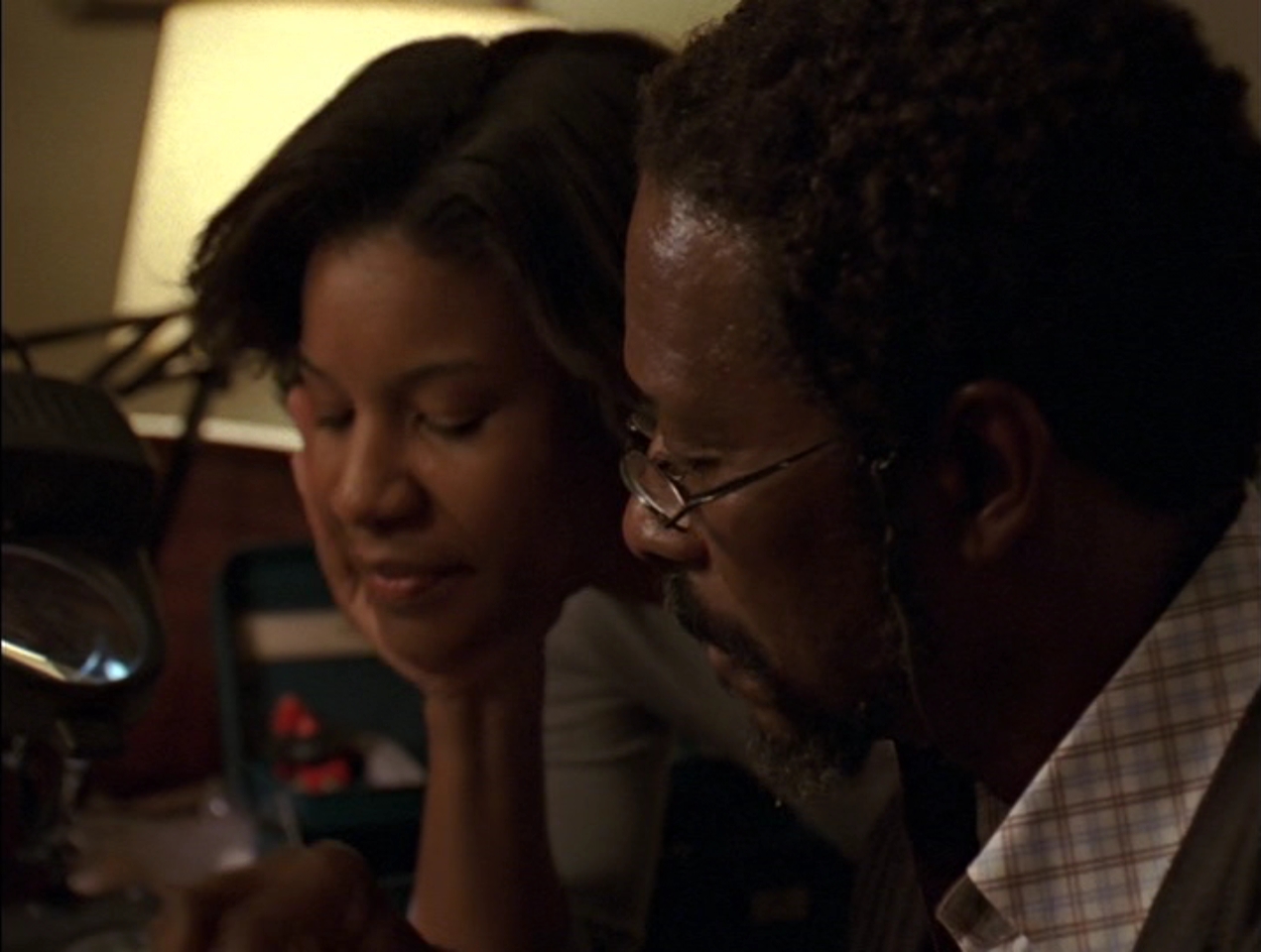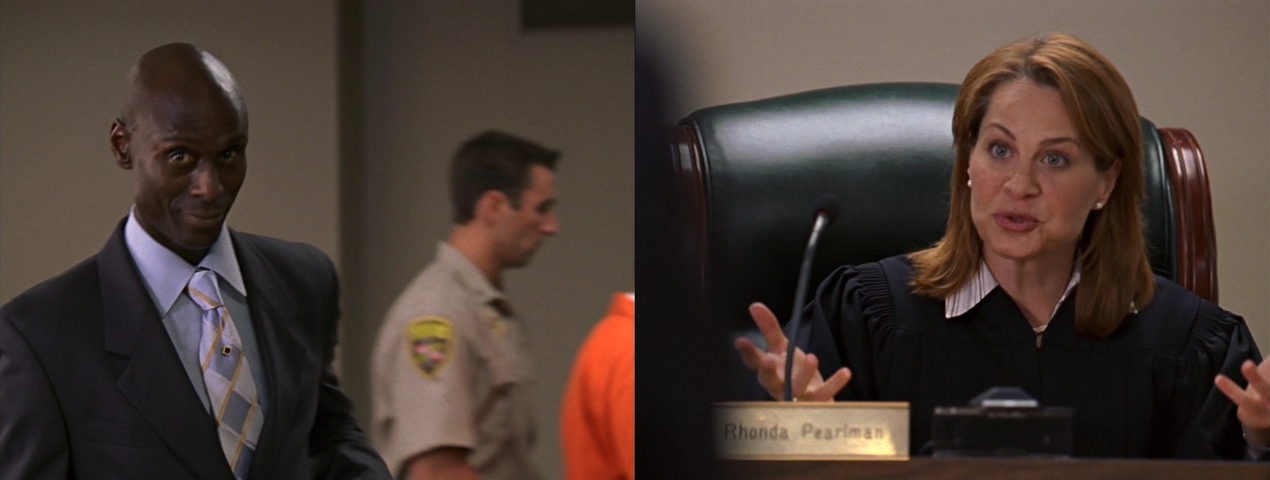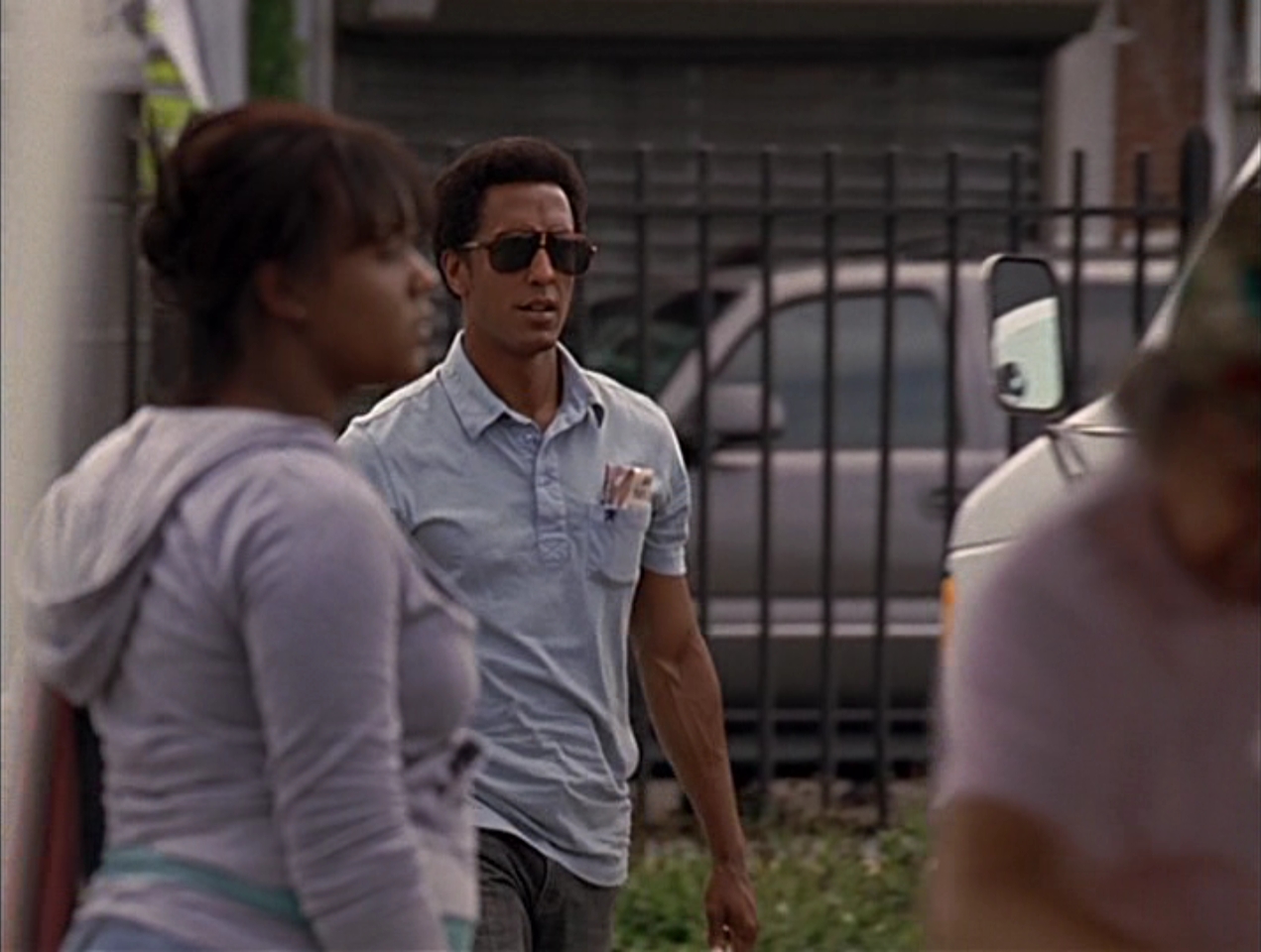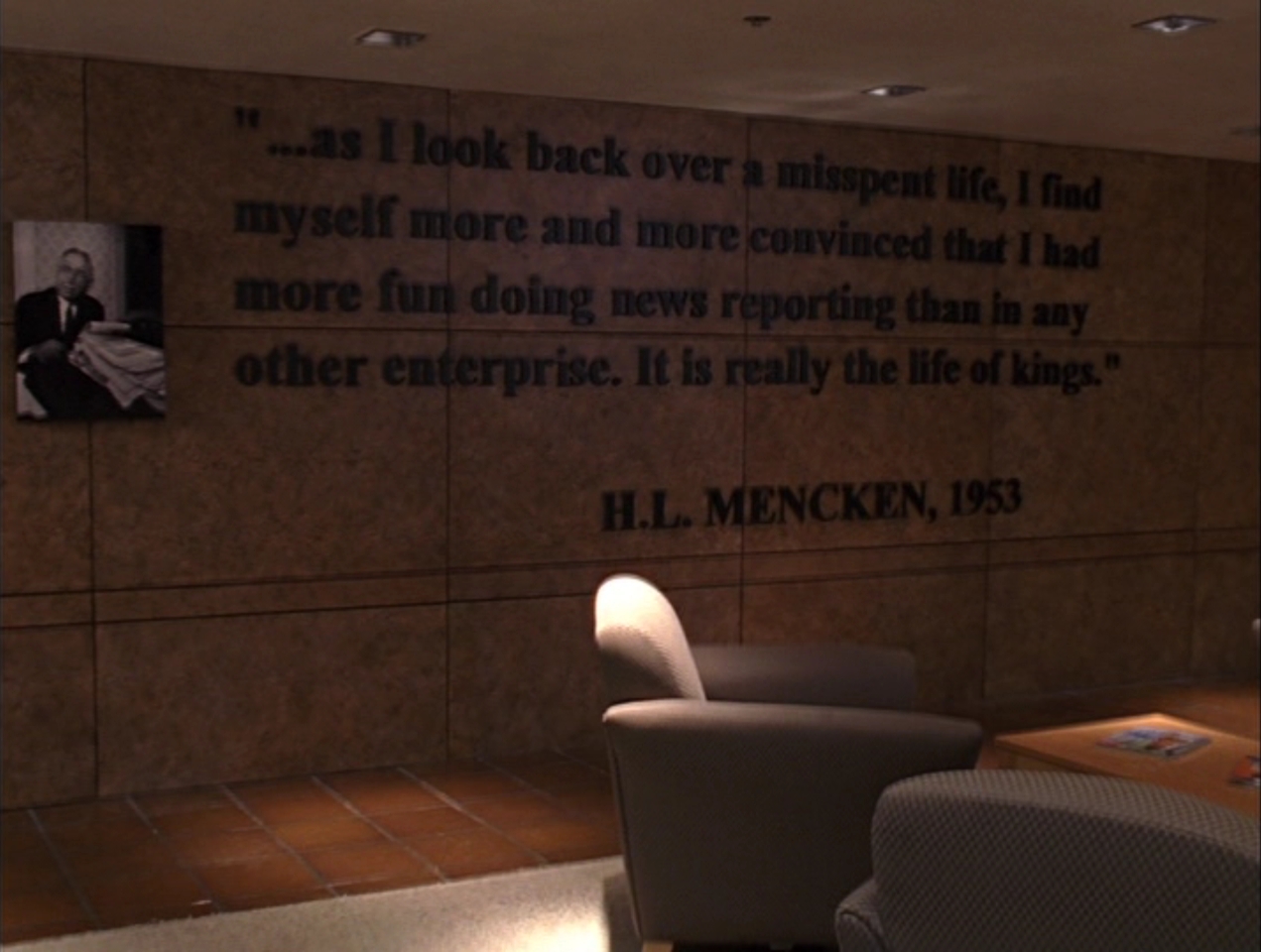It takes a complex and nuanced piece of storytelling to firstly provoke, and then sustain thoughtful, prolonged consideration of its themes, its characters, its flaws and failings, its ambitions and their execution. The Wire, repays such close attention. Even its imperfections are interesting, as demonstrated in the honest and robust assessment of its absent women or the analysis of the story arc of Prez.
When TV drama claims to represent reality it offers itself up for close scrutiny. Over at Freakonomics the real “thugz” have been roundtabling The Wire. Here at The Hooded Utilitarian, I’d like to share some thoughts on The Wire from the point of view of an ex-cop and current crime writer.
From where I stand, The Wire got some very important things about cops right – but left one very important thing out.
Firstly to what worked.
Although I was in The Job on the other side of the planet, I recognised these cops. A discussion with a family member, who’d found Landsman’s foul language and porn mags a bit of a stereotype, reminded me just how real they were. Landsman could have been one of any number of sergeants I’d worked with –their filthy mouths, filthy minds and “stick” books stuffed in their bottom drawers.
But it’s McNulty who struck me as the genuine article. The discussion of McNulty as hero – or anti-hero – of the American Monomyth touched on some of the ways that McNulty subverted the role.
Dramatically McNulty is the protagonist. He gives us many of the inciting incidents that propel the narrative arcs of The Wire. In drama, most heroic characters are motivated by external factors; their quests are the pursuit of justice, the righting of wrongs, the defence of the powerless. But McNulty is motivated by internal factors; he knew he was smarter than Avon Barksdale and his crew and he knew how to manipulate a judge to get a chance to prove it.
McNulty was no hero, but he was a lot like a lot of cops I knew. They see The Job as a cross between a game and a business, and they play to win. They believe they are the smartest person in the room, and they’ll bend and break a lot of rules to guarantee they come out on top.
As well as being a proud bastard, McNulty was one hell of a shit stirrer. He was not, could not, be naïve about the consequences of getting a judge to put a rocket up police management – for McNulty causing Rawls and the hierarchy grief was the cream on top.
It’s hard to see any noble motives in all those hours of work on charts and tides that McNulty puts in to prove those bodies were in the jurisdiction of his old nemesis Rawls. Even riding the boat, McNulty was still a murder police. He seized the chance to show he was smart enough to use the very position he had been sent to as punishment in order to outwit Rawls. McNulty is like the smartest kid in class, easily bored, happiest when causing trouble and not much bothered by the fact that he (not for the last time) royally screws his old pals Bunk and Lester in the process.
There’s never any real sense that McNulty feels too deeply about any of the dead victims in the container case, which is again unlike the standard response of most heroic TV cops. In fact his behaviour when he goes “undercover” in the brothel in S2, and is found deshabille when it is raided, rather adds to his unheroic but realistic status.
When Rawls refuses to allow McNulty in on the container case, the bored troublemaker’s attention shifts to the “suicide” of D’Angelo Barksdale. Yet, even his interest in D’s death becomes just another twist in the long game. He sees it as a way to Stringer Bell, straight through Brianna Barksdale’s grief.
More likely candidates for hero-cop in The Wire are Carver and Freamon. Carver’s journey from street rip narco cop to wise street cop who knows his young offenders by name and offers them one break, who goes out of his way to try and “save” Namond from Juvenile Hall, who tries and fails to save Randy, goes to emotional places McNulty does not seem to possess.
Beadie Russell’s tears as Frank Sobotka is pulled from the water; Freamon’s obsessive desire to “follow the money” which seems to stem from an understated yet driving sense of justice, are all characters and behaviours that echo our expectations of what “good” cops ought to be.
For McNulty, though, a wire is a way to do good police work, to show he’s good police, to keep him occupied and interested, and give him the space to shine.
It’s worth considering McNulty’s reaction after Omar’s “heroic” speech to Levy, where the criminal tells the truth and exposes the permeability of the barrier between good and bad, legal and illegal. As the cop who has orchestrated this perjury, McNulty’s delight in it is summed up in the moment outside the courtroom where he alerts everyone to watch out for the “eyefuck” as Omar and Bird exchange looks.
Yet again, McNulty shows that he knows exactly how to play the game to get the result he wants. He’s smarter than the Barksdales, he’s smarter than the system. It’s a foreshadowing of his final and epic play of the game in S5.
So, McNulty is no hero, but damn, he plays like a real cop. In him I hear the echoes of so many of the cops I’ve worked with along the way, smart, selfish and in thrall to their own egos.
So many things in most TV cop shows drive anyone with a passing acquaintance with real life policing batshit crazy. For me, the standard scene where the hard working, dedicated cop takes home the brief, all the files, the photos, and spreads them out across his/her Spartan apartment, then after staring and re-reading and drinking alone through the night there’s the Eureka moment. The truth was there all along! Everyone else had just missed it!
Never seen it happen.
Ever.
Cops get breakthroughs by talking to people. Not nice people, because nice people don’t know very much about drugs, and dealers, and guns, and murder. Cops need to get close to crooks. Crooks tell you things about other crooks, and for all sorts of reasons, usually to screw up the competition or to save their own skins. They tell you things when they’re arrested and have no other options. They tell you things like Bubbles, as a career, being a professional gig, or like Omar, in order to extract revenge, or like Stringer Bell, as a strategic move in a long game, but often the very best things are told to you by people who don’t know you’re listening.
The Wire got this exactly right. Wordplay, not gunplay, and paperwork, lots and lots of paperwork, and many, many, many mostly boring hours watching, listening, waiting for something to happen, is how most real policing happens.
But, there was one area of real policing where The Wire’s normally unflinching gaze pulled back.
Yup, I’m talking about corruption. Police corruption.
Not the juking of stats corruption but the real down and dirty on the street, ripping off and robbing dealers, offering protection to criminals, taking bribes, putting money and drugs in the pocket, type of corruption.
It is alluded to in the case of Daniels.
His “past” was a constant shadow, lurking, just waiting to pounce and puncture his career – which it eventually did. The specifics of it were never delineated, though it is strongly suggested that his nice house and the fine lifestyle he enjoyed with his wife is the result of corruption.
But it is also very much implied that what had happened was in the past. And that it was localised, in the unseen “The Eastern District.”
When Herc and Carver discuss pocketing a stash of cash, just a small portion of one day’s takings, during the Barksdale operation in S1, I thought, “Ah ha! So, now we’re going to get down to it.”
Only, we didn’t.
Carver, talks Herc out of it, pretty much because he believes that the wire might discuss figures, so they’d be caught. It’s a fairly ambiguous moral decision, based on the risk factors rather than moral ones, though it is justified by what happens next. Part of the money goes missing (innocently lost) and it’s Daniels who concludes they have stolen it. His reaction implies that in his experience that that is exactly what usually happens and that he – nowadays – disapproves of it.
Anyone who has spent anytime involved in working drugs will tell you, the volume of money, hard cash, that can turn up, unexpectedly, in the course of a search warrant, an arrest, a car stop – is mind-boggling.
This is shown graphically during the simultaneous raids ordered in response to Griggs’ shooting: money, drugs and guns fall out of fridges, chairs, and bedding. This time Herc and Carver seize the moment and the cash. No discussion. Their eyes meet and they stuff a bundle into their vests, confirmation perhaps that Carver’s previous caution was risk-based, rather than morality-based.
It’s shown as a spontaneous action. Understandable even, in their anger over a colleague’s shooting, over the police management’s decision to waste all their hard work by demanding “drugs on the table” in time for the evening news, in the face of the obscene wealth of those they have been fruitlessly chasing.
The amount of cash lying around waiting to be found and pocketed by an opportunistic cop is shown to be considerable. But in reality, that is loose change, compared to the amounts of cash that can be made by a cop actively looking for it, a cop who is prepared to do business.
The Wire’s thesis that the prohibition on drugs has been a pernicious failure that causes infinitely more damage than it averts, did not fully explore the corrosive effect it has in corrupting the police, and not just the institution of police but the individual street police.
That little glimpse of Herc and Carver is, in reality, exactly what a lot of police do, every day. Most times there isn’t a wire. There’s no one looking, there’s just a couple of cops, a stash of money and a crook happy to get a pass. No biggie. They can make the cash back again, easy.
The Wire is, in so many respects, courageous and admirable in examining the fallout of the war on drugs that it comes as a surprise when they avert their gaze from the pervasive and poisonous affect of drug money in generating and sustaining systemic police corruption.
The Wire is prepared to throw a lot of punches. It certainly doesn’t miss the Law, as represented by Levy, or the political classes, both are shown as irredeemably corrupt. It is shown, explicitly, when Levy pays off a Grand Jury Prosecutor in order to secure court documents. Ill gotten cash swirls around the characters of Levy and Clay Davis, it is handed over, intercepted, referred to as “donations”, but the links between the illegal drug economy and politics and the law is shown unflinchingly.
Yet the police corruption that is emphasised is “juking the stats”, not ripping off dealers for their money, drugs and guns, or in the reselling of those drugs and guns, not in taking bribes to lose cases, or, like the Grand Jury Prosector leak court briefs, or information.
McNulty’s capers in encouraging a witness to perjure himself (Omar), or creating a serial killer, are examples of the so-called “noble cause” corruption, where the rules are bent for the greater good. (Though as I’ve suggested in these cases the greater good is Jimmy McNulty’s ego).
Interestingly, McNulty is seen taking a bribe, at the beginning of S2, when he accepts some cash from the party boat. Again, this was an “Ah hah!” moment for me as a viewer. It fit. Were the writers indicating that McNulty was used to taking bribes as a detective and merely carrying on when the opportunity presented itself in his new lowly job? Or was this going to be how losing his status as a detective leads him down a path of corruption?
Neither apparently.
Rather like Rawls in a gay bar, and Herc and Carver’s quick handful of bills, the moment passes and is never really followed up. These incidents of personal corruption stand as opportunistic, spontaneous events, rather than as part of something larger and systemic.
In fact, there is no further reference to corrupt behaviour again until S4 and the evil Officer Walker appears. However, he’s presented more as a bully than a seriously corrupt policeman, stealing as he does from kids, breaking the fingers of Donut when he causes him paperwork.
Most of the police we see have, for the most part, no contact with corruption. We don’t see them resisting it; they just have no contact with it.
It’s not as if there were no police corruption scandals happening in Baltimore during the making of The Wire.
Two Baltimore cops, William King and Antonio Murray, were arrested in 2005, for stealing and re-selling heroin from street dealers. This is not the petty theft and casual sadism of Officer Walker. These guys were doing business.
Police corruption is no secret. The famous Knapp Commission in New York in the 1970s inspired the Serpico movie, and led to a permanent body being set up in 1995, The Commission to Combat Police Corruption. Look at most police forces in western democracies and corruption scandals and commissions litter the landscape: in Australia there have been The Wood Royal Commission in NSW and The Fitzgerald Inquiry in Queensland.
The presence of Ed Norris in The Wire, a controversial figure, convicted of corruption, flags that the issue was not unknown to the writers but that they, perhaps, rather like an embedded reporter, had chosen not gaze too intently at it.
David Simon proudly calls The Wire an anti-cop show, and in so very many fine ways it is – but in choosing not to fully follow through the consequences of the corrupting influence of the war on drugs on the police, The Wire is clearly not anti-cop.

